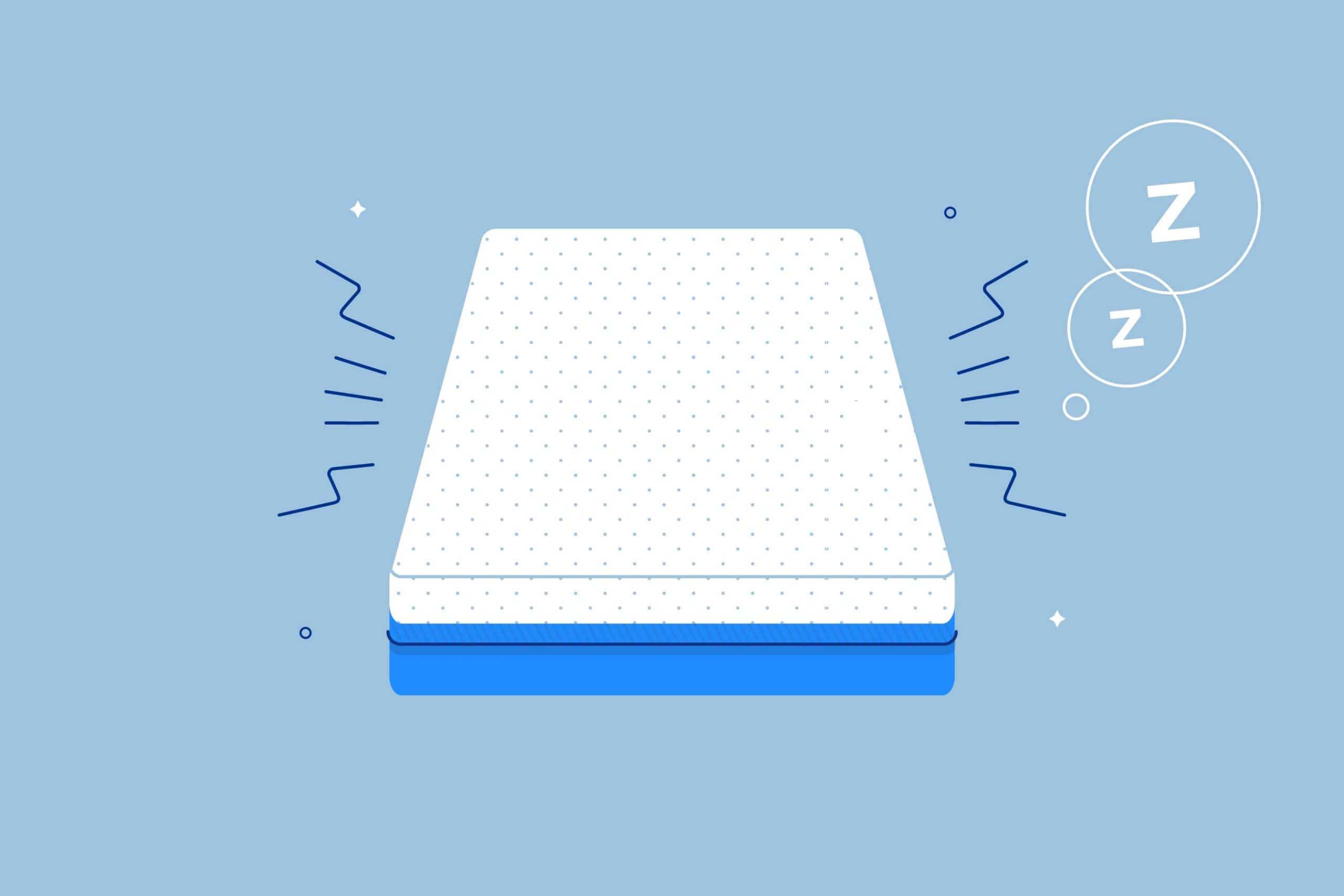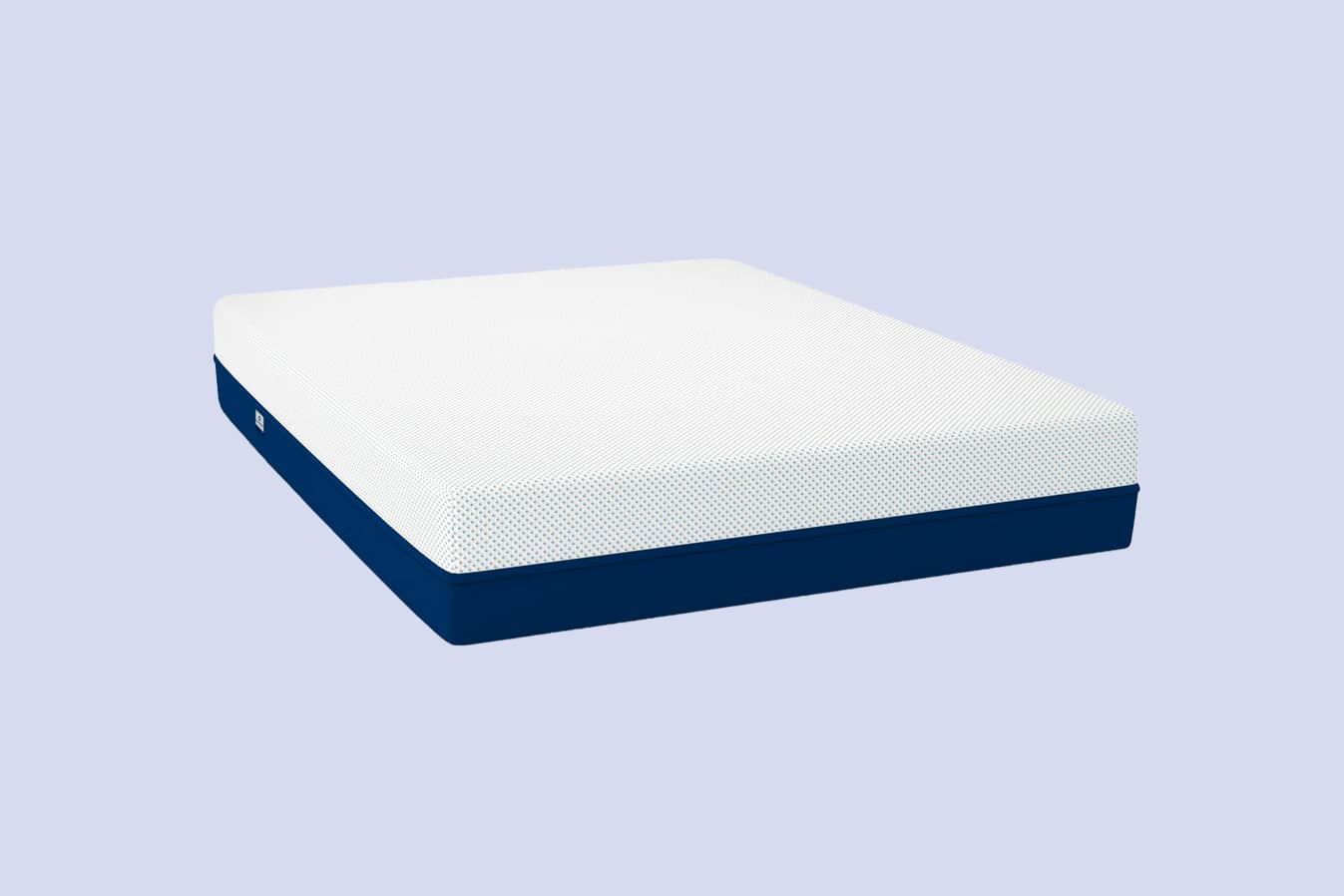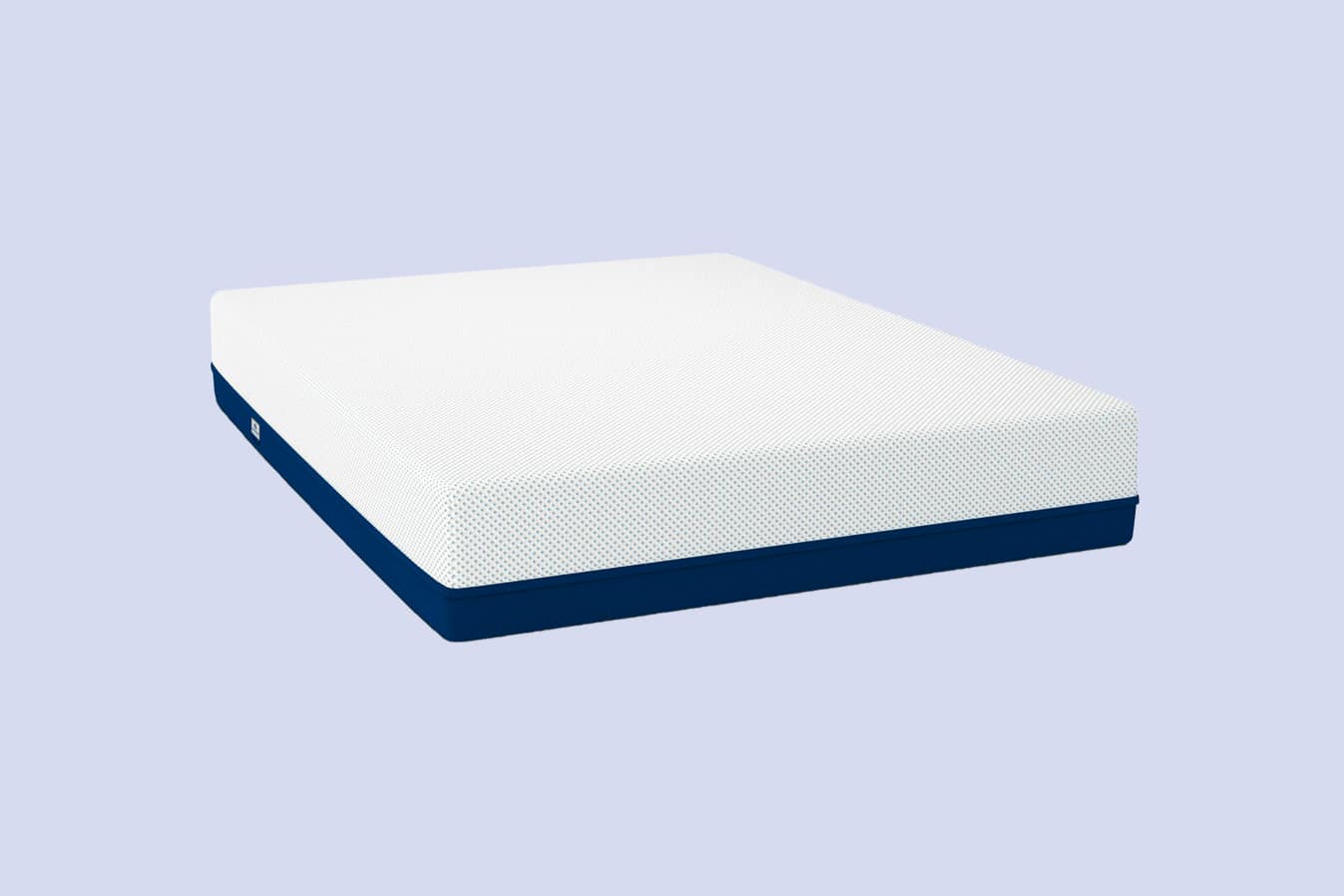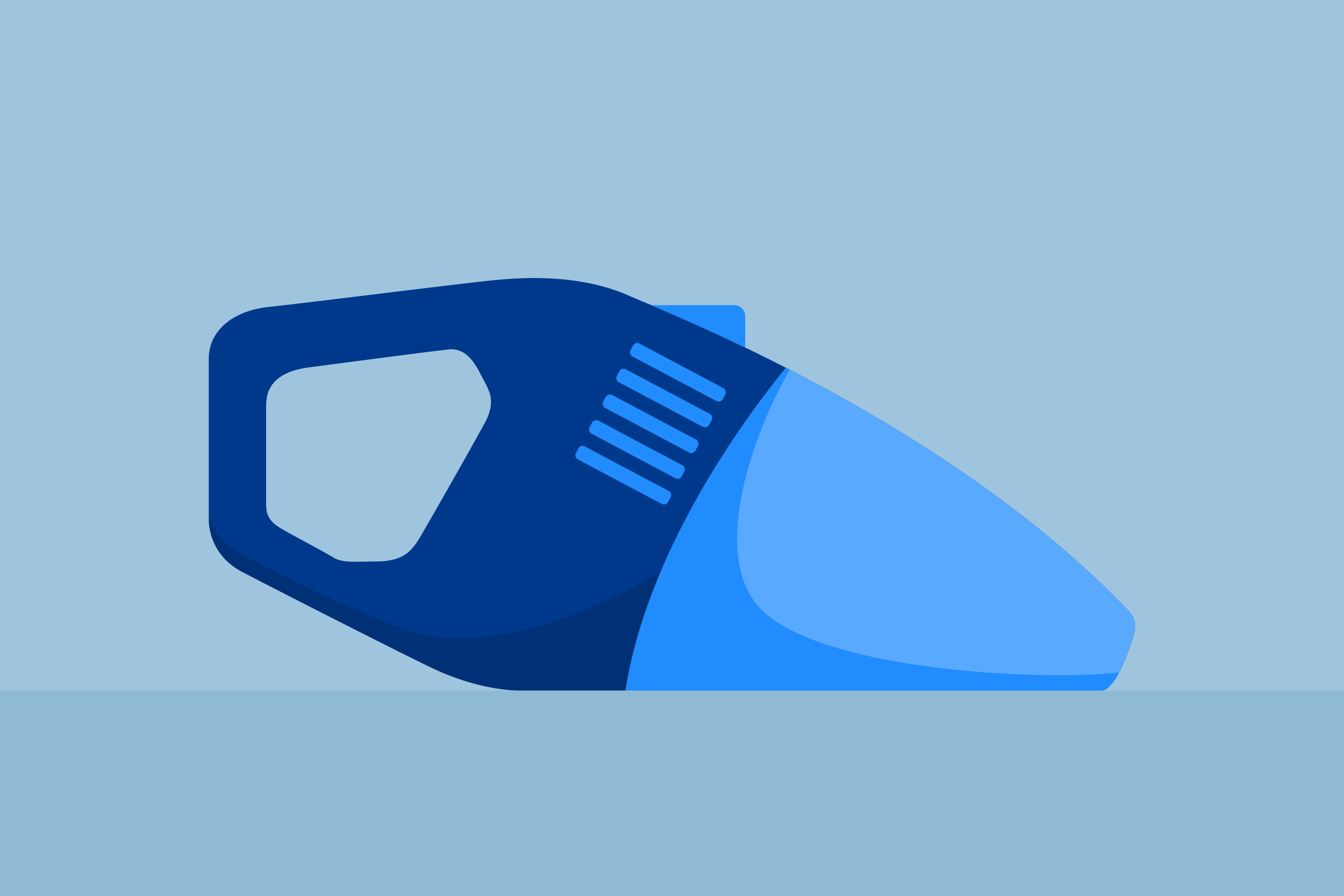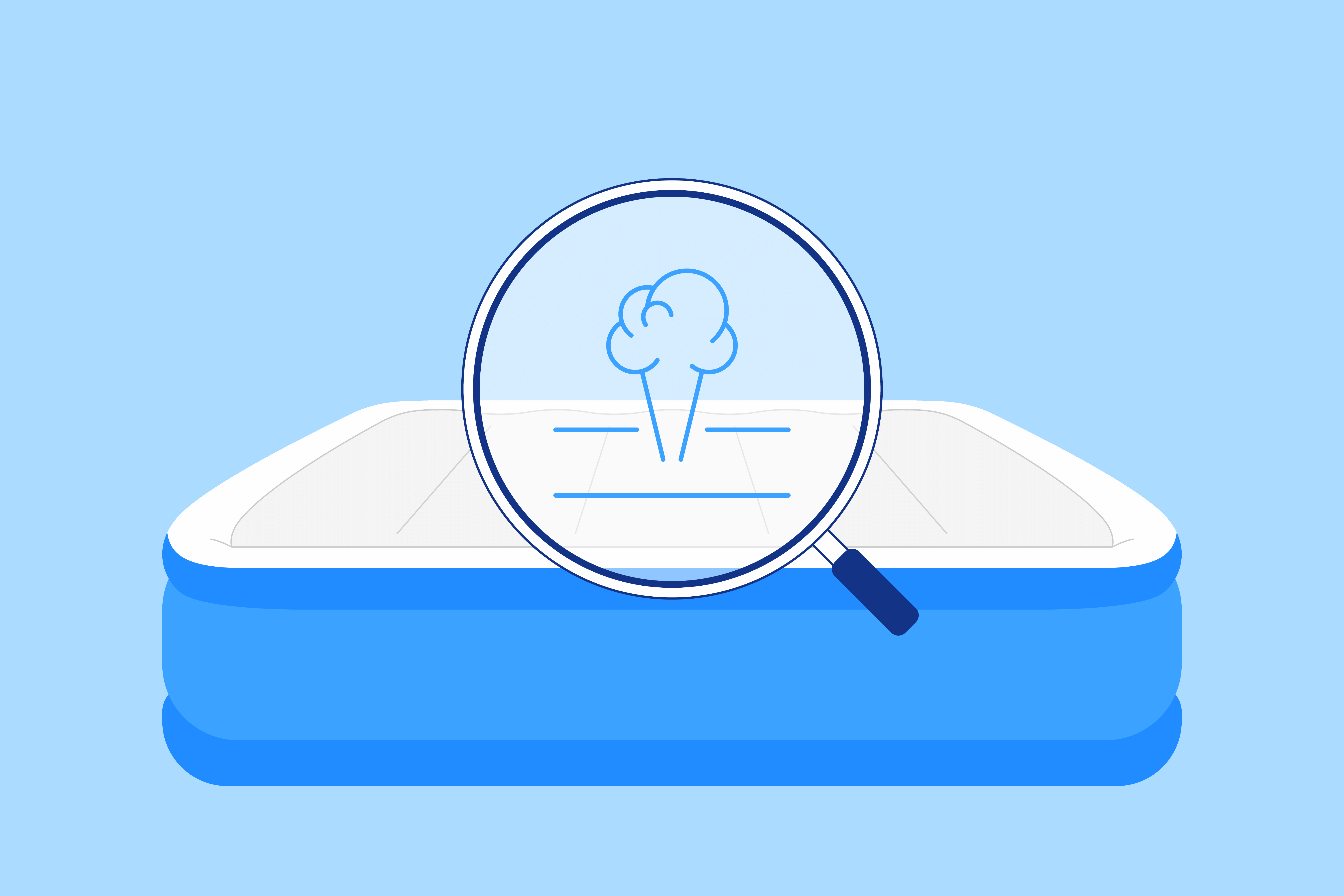Powered by Amerisleep, EarlyBird brings together a dedicated team of sleep science coaches, engineers, and product evaluators. We meticulously examine Amerisleep's family of products using our unique product methodology in Amerisleep's state-of-the-art laboratory. Our commitment to sustainability is reflected in our use of eco-friendly foam in our products. Each article we publish is accurate, supported by credible sources, and regularly updated to incorporate the latest scientific literature and expert insights. Trust our top mattress selections, for your personal sleep needs.
Most of us snore at least a few times during our lives, usually when our allergies are flaring up or we’re dealing with a cold. Occasional snoring doesn’t pose a serious health risk, but if the problem seems to be persistent, it may be time to adjust your sleeping . Your mattress could be making your snoring worse if it’s more than 7-8 years old, has developed significant sags, or is overall unsupportive.
Heavy snoring not only disrupts the sleep of those around you, but it can have negative effects on your physical health as well. The most common sleep disorder that develops from snoring is sleep apnea, which occurs when the soft tissue in the throat collapses and blocks the airway. Over time, untreated sleep apnea is often linked to insomnia, the most common sleep disorder in the United States.
The best mattress for snoring should relieve tense pressure points and keep the sleeper on an even, supportive surface. Additionally, snorers should consider a wedge pillow or a memory foam pillow with a medium or high loft since this may help their airways stay open and unobstructed.
Amerisleep Mattresses for Snoring
Quick Guide: A 30-Second Summary
Best Mattress Overall for Snoring
Amerisleep AS3
Best Soft Mattress for Snoring
Amerisleep AS4
-
Price Range
$1149 to $2398
-
Mattress Type
Memory Foam
-
Firmness
5 to 6 out of 10 (Medium)
-
Availability
All sizes
-
Warranty
20 Years
-
Thickness
12 Inches
The Amerisleep AS3 is Amerisleep’s top-selling mattress because of its balanced, medium feel. It’s also our favorite mattress for side sleepers, making it a good option for snorers.
- Bio-Pur® foam molds to hips and shoulders
- HIVE® technology boosts cushion to sensitive areas
- Bio-Core® foam resists sagging
- Side sleepers, along with back and combo sleepers
- Hot sleepers
- Eco-conscious shoppers
The Amerisleep AS3 contains 3 inches of Bio-Pur®, a 2-inch Affinity layer with HIVE®, and 7 inches of Bio-Core®.
Bio-Pur® is a plant-based memory foam that provides a more breathable and responsive structure than traditional memory foam. The material hugs the sides well, easing pressure in the shoulders and hips.
The Affinity with HIVE® technology relies on five zones of support to provide what each part of the body needs. The base layer of Bio-Core®structures the mattress.
-
Price Range
$1349 – $2798
-
Mattress Type
Memory Foam
-
Firmness
4 to out of 10 (Medium-Soft)
-
Availability
All sizes
-
Warranty
20 Years
-
Thickness
12 Inches
Designed to be soft but not too soft, the AS4 can embrace the body for compete pressure and pain relief.
- Layer of Bio-Pur® thicker than in any other mattress
- Targeted support to head, shoulders, torso, hips, and feet
- Supportive base foam promotes stability
- Side sleepers who snore
- Hot sleepers
- Smaller individuals
For snorers who want a softer mattress but still need even support, the Amerisleep AS4 is a perfect choice. It contains 4 inches of Bio-Pur®, a 1-inch Affinity layer with HIVE® technology, and 7 inches of Bio-Core®.
Because the AS4 has one inch more of soft Bio-Pur® foam than the AS3, it relieves pressure points but is still responsive and supportive enough to help you maintain a healthy sleeping posture.
Amerisleep Mattress Materials
Bio-Pur®
Plant-based Bio-Pur® foam tops each Amerisleep mattress in varying thicknesses depending on the firmness. This foam is unique because it’s ten times more breathable and five times more responsive than traditional memory foam. It provides a durable cushion for all sleeping positions.
Affinity Layer with HIVE® Technology
The Affinity layer with HIVE® sits below the Bio-Pur®, where it transitions between the soft comfort layer and the firmer Bio-Core® support layer. HIVE® stands for Harnessing Intelligent Ventilation & Energy. The HIVE technology is comprised of hundreds of hexagonal-shaped cutouts that are more heavily concentrated where the body needs more support (in the hips, shoulders, and feet), and spaced further apart in areas where you need softer cushioning. This layer also works to wick away heat and moisture.
Bio-Core®
The Bio-Core® at the base of each Amerisleep mattress is the reason we can offer a generous 20-year warranty. Like the Bio-Pur®, Bio-Core® is made using low VPF manufacturing, exceeding the Clean Air Act standards. Bio-Core® deters sagging and supports the softer layers above it, so you never have to worry about your bed losing support.
What is Snoring?
Snoring occurs when the soft muscles or fatty tissue in the mouth relax, collapsing and blocking the airway. During the day, we’re using these muscles, so they aren’t relaxed. However, as we sleep, they can sink down. If they are inflamed by allergies or other illnesses, this can also block the airway passage. The vibrating sound you hear is air trying to get past these muscles.
Snoring falls under the umbrella of sleep-disordered breathing (SDB), which also includes sleep apnea (the most common SDB). An “apnea” is a pause in breathing for 10 seconds or more while sleeping. As you can imagine, this interruption can easily throw off someone’s sleep patterns, leading to daytime sleepiness, irritability, poor memory retention, and insomnia, just to name a few potential side effects.
Not everyone who snores has sleep apnea, but if you’re noticing the snoring is persistent, it’s worth getting checked out by a doctor.
Snoring Risk Factors and Causes
90 million Americans Verified Source Harvard Health Blog run by Harvard Medical School offering in-depth guides to better health and articles on medical breakthroughs. View source snore, according to Harvard Health. Even if your snoring isn’t linked to sleep apnea, it’s disruptive to your sleep and can make getting a good night’s rest challenging.
Snoring is often linked to other diseases and problems. They appear together often enough that sometimes addressing one can lead to the alleviation of the other. This list is not comprehensive— note that other causes and risk factors of snoring may not be listed here.
- Sleep apnea: As we’ve already discussed, snoring can be a sign of sleep apnea, but not everyone who snores has it.
- Allergies/congestion: If you suffer from seasonal allergies or congestion, your airway passages are already inflamed and prone to closing up while you sleep.
- An unsupportive mattress: Yes, a bad mattress could be causing you to snore! If your mattress is more than 7-8 years old (the average lifespan of a good mattress), developing lots of sags, or just overall unsupportive, it could be forcing you into an unhealthy sleeping position, leading to snoring.
- High blood pressure: High blood pressure Verified Source National Library of Medicine (NIH) World’s largest medical library, making biomedical data and information more accessible. View source has long been linked to sleep apnea and snoring.
- Hypothyroidism: Some studies Verified Source National Library of Medicine (NIH) World’s largest medical library, making biomedical data and information more accessible. View source have observed snoring in patients with hypothyroidism, although a direct correlation has not been proven. One possible link is that patients with hypothyroidism are often overweight, which is another possible risk factor for sleep apnea and snoring.
- Sleep position: Those who sleep on their backs are more likely to snore because their heads and necks are not elevated. While their heads are tilted back, gravity presses down on the soft palates of the throat, leading to snoring.
- Gender: Men Verified Source Mayo Clinic Ranked #1 hospital by U.S. News & World Report and one of the most trusted medical institutions in the world. The staff is committed to integrated patient care, education, and research. View source tend to snore more than women.
- Family history: In some cases, snoring can be linked to genetics.
- Heart disease: Heart disease Verified Source Harvard Health Blog run by Harvard Medical School offering in-depth guides to better health and articles on medical breakthroughs. View source is often associated with snoring and sleep apnea, and some studies have shown tackling heart health can ease or eliminate snoring symptoms.
Preventing Snoring
As long as your snoring hasn’t evolved into something more serious, like sleep apnea, you can treat it with the help of a doctor or by trying these simple remedies. Note that doing these things may or may not eliminate snoring, and it’s always best to get any personalized medical advice from a doctor.
Switch to Your Side
Sleeping on the side is overall the healthiest position for your body. It puts less pressure on your organs, keeps your spine neutral, and opens up the airways— the key for snorers to get better sleep.
Side-sleepers are susceptible to pins and needles, especially if they sleep with their arms under their pillows. For this reason, side sleepers should sleep with a mid to high-loft pillow that has ample pressure relief and support. This will help them avoid neck pain or strain as well as obstructed airways.
If you sleep on your back or stomach and you’re not used to the side sleeping position, try transitioning with a body pillow. Remember: the best mattress will allow you to sleep comfortably without any back pain or breathing issues.
“The importance of posture in facilitating good sleep is often underestimated,” says Dr. Nayantara Santhi. “An upright position is the main body posture we use for various cognitive activities while a lying position is primarily used for sleep and quiet rest. A good lying position is critical for sleep because it can impact a person’s breathing, muscles, and even brain activity.”
Invest in a New Mattress
Side sleepers typically prefer a medium or medium-soft mattress— one that will provide an even balance of support and comfort.
Many bed in a box mattress brands market their medium models as the bestseller because a medium feel appeals to many, especially side sleepers. We recommend trying out medium or medium-soft models in person to see which feel is best for you.
If your mattress is showing signs of aging, such as deep sags, bent or broken coils, or warped or bunched foam, it could be time for a new one. Furthermore, if you’re waking up in pain or you feel tired even after a full night of rest, your mattress might be the culprit.
An unsupportive mattress can lead to snoring because it will cause the user to sink down too far or feel “stuck” in bed. This, in turn, leads to poor spinal alignment, achy joints, and pressure build-up in the head and neck. To avoid snoring or other SDB issues, sleepers need a mattress with enough cushioning to alleviate pressure and enough support to keep their posture neutral.
Sleep on a High-Loft Pillow
“Loft” simply refers to a pillow’s height. You might not realize it, but your pillow can have a major impact on your sleep quality. The best loft depends on your sleeping position, but snorers, in particular, should choose a medium to high-loft pillow that will keep their head and neck at a slight incline.
Treat Allergies and Congestion
If you suspect your snoring is the result of seasonal allergies or a passing cold, focus on treating the inflammation. One of the top reasons people snore is due to allergies of some kind.
Use an Adjustable Base
An adjustable bed is a great remedy for snoring, albeit an expensive one. Adjustable beds are no longer just for hospitals, although they are still used by bedridden patients to improve their circulation and recovery. Now anyone can get an adjustable base to use with their own mattress in their own home.
Adjustable bases all have something called “head and foot articulation,” meaning the user can adjust the incline of their legs and head— some adjustable bases even have a zero-gravity setting. Being able to adjust your posture via remote isn’t just convenient— adjustable bases improve circulation, reduce swelling or fluid retention, alleviate back or joint pain, and open up the airways.
Many adjustable beds have a “snore button,” so if your partner is interrupting your sleep with their snoring, you can press the button and raise their heads slightly, opening up their airways again.
What Should Snorers Look for In a Mattress?
The best type of mattress for snoring should have at least these two things: support and pressure relief, especially in the head and neck. On top of that, since you’re investing a lot of money in a new mattress, you’ll want it to last a long time without sagging or losing support. A high-quality mattress should last at least 7-10 years.
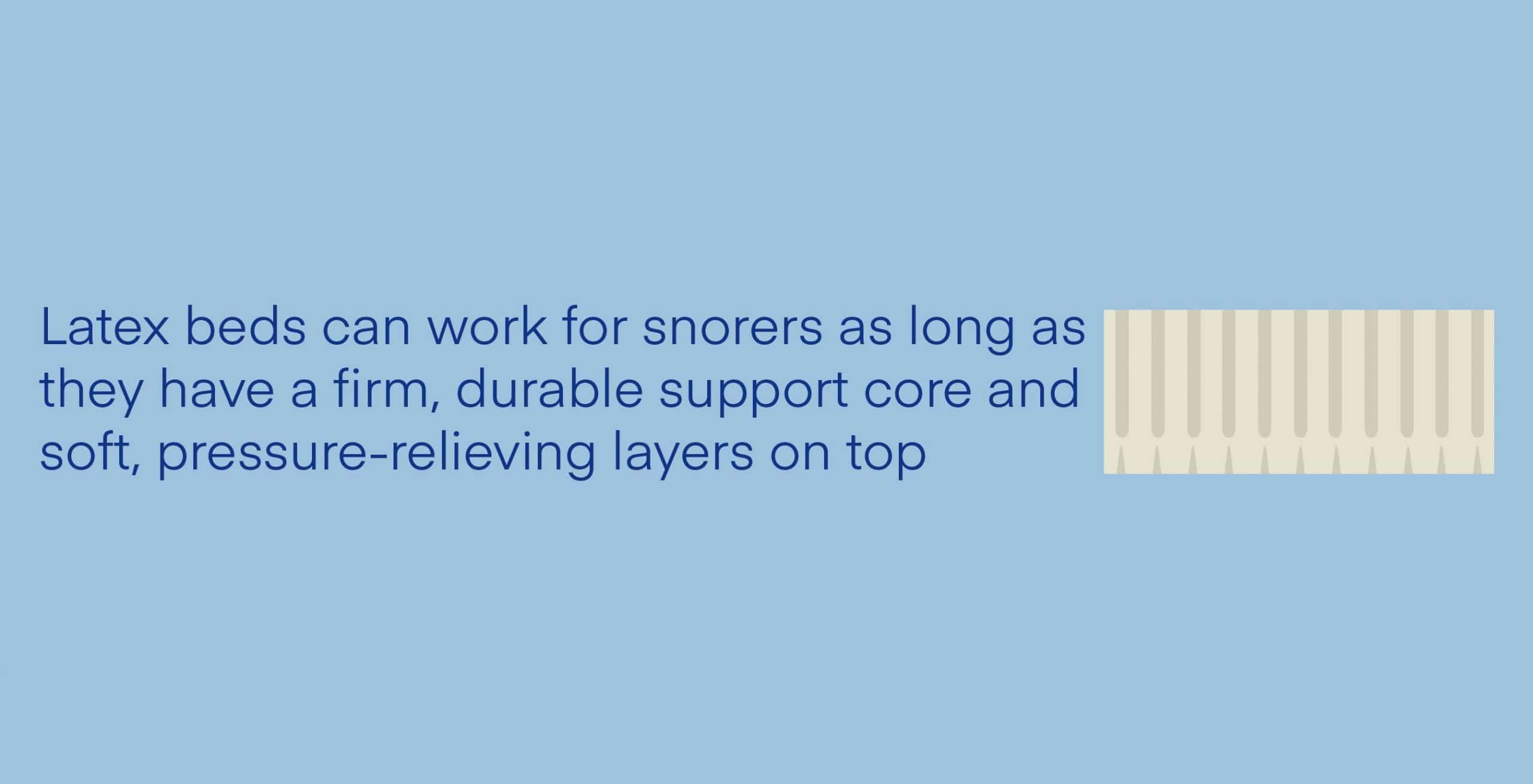
Support
Sometimes we conflate firmness with support, but they are not the same thing at all. A firmer mattress is not necessarily more supportive, and a soft mattress is not necessarily less supportive. The firmness you choose depends on a few other factors which we will go over in the firmness section.
Support simply refers to the mattress’s ability to keep you comfortably on its surface without sinking down too far or misaligning your back or hips. For the best support no matter your sleeping position, look for a mattress with a sturdy support core. Read customer reviews from people who bought their mattress over 3 months previous, as this will give you a good idea of how long the mattress really maintains support.
Pressure Relief
When we lay down on a mattress, the force of our bodies against the mattress surface creates pressure points. Depending on the mattress type and our sleep style, sleeping can cause the pressure to build up even more.
As pressure builds up, it can lead to a restless, painful night of sleep. Snorers need a mattress with plenty of pressure relief. If you decide to switch to side sleeping, you will need some amount of cushioning and pressure relief since your hips and shoulders will take on most of your body weight. Look for a mattress with a comfort layer at least 3 inches thick, as well as a supportive base layer to prevent deep sinking.
Correct Firmness
You’ve probably noticed in your mattress research that online mattress brands market their mattresses to different sleeping positions based on the mattress firmness. This is because a mattress comfortable to a back sleeper will most likely feel too firm for a side sleeper, and vice versa. The goal of any mattress should be to give you a good night’s sleep without pressure build-up and lingering pain in your joints or back.
Keep in mind that firmness is a little subjective and varies between brands. What one brand classifies as “firm” may fall under “medium-firm” for another.
| Sleeping Position | Recommended Mattress Firmness |
|---|---|
| Side sleeping | Medium, medium-soft, or soft mattresses for side sleeping |
| Back sleeping | Firm, medium-firm, or medium mattresses for back sleeping |
| Stomach sleeping | Firm or medium-firm mattresses for stomach sleeping |
| Combination sleeping | Medium or medium-firm mattresses for combination sleeping |
We recommend side sleeping if you’re a snorer because it’s the best position for overall spinal alignment and unobstructed airways. If you’re a back sleeper, you’re already at risk for developing a snoring problem, so try to switch.
We do not recommend stomach sleeping at all; it can strain your neck and lead to back pain. According to our table above, the best mattress for back pain is firm or medium firm because it shouldn’t let the hips sink down. So, if you must sleep on your stomach, choose a firmer mattress.
If you want to switch to your side, start by using a body pillow or put a pillow between your legs for extra lower back support.
Lifespan and Durability
A high-quality mattress should last between 7-10 years, but it does depend on the mattress type and how well you maintain it as well. Snorers will need a durable mattress that deters sagging even after repeated use; that way, they won’t be at risk for unhealthy sleeping positions and increased snoring.
| Mattress Type | Average Lifespan |
|---|---|
| Innerspring Mattresses | 5-6 years |
| Hybrid Mattresses | 6-7 years |
| Memory Foam Mattresses | 7-8 years |
| Latex Mattresses | 8-9 years |
It’s hard to tell how durable a mattress will be before you even use it; however, if you look at the warranty, you can get a good idea of how long the mattress company expects the mattress to last. In the mattress industry, a 10-year warranty is the standard. If a company offers a warranty longer than 10 years, that’s a good sign.
With that said, incredibly lengthy warranties, such as lifetime warranties, are more of a marketing technique since most mattresses don’t last an entire lifetime.
Best and Worst Mattress Types for Snoring
When it comes to mattress type, you have a few choices; snorers, in particular, should pay attention to mattresses with (and without) pressure-relieving materials and even, consistent support.
Memory Foam Mattresses
Memory foam mattresses are some of the best for snoring because they absorb sound and motion, cushion pressure points, and bounce back without sagging.
One downside of memory foam is that it traps heat, and because memory foam often makes up the comfort layers in a memory foam mattress, it’s more likely to make you feel hot and uncomfortable as you sleep. Lots of brands infuse their foams with charcoal, graphite, copper, or gel to dissipate heat. Others incorporate foams made with air channels to encourage airflow.
Amerisleep’s Bio-Pur® is plant-based and breathable. Because some of the petroleum in the foam is replaced with castor oil, it emits little to no off-gassing smell. Amerisleep’s memory foam mattresses are fit for side sleepers, stomach sleepers, and back sleepers; again, we recommend snorers sleep on a mattress for side sleepers, like the AS3 and AS4.
Are memory foam mattresses good for snorers?
Yes, we think memory foam mattresses are the best for snorers because they provide an even balance of support and softness. Be sure to choose a memory foam mattress with a durable support core that will deter sag.
Latex Mattresses
Latex mattresses are made of natural or synthetic latex. Both types feel similar to memory foam, but latex overall is more bouncy and responsive than memory foam. Some reviews for latex mattresses say that it feels slightly firmer than memory foam, too.
Latex beds can work for snorers as long as they have a firm, durable support core and soft, pressure-relieving layers on top. Latex mattresses are typically more expensive and heavier than other mattress types.
Are latex mattresses good for snorers?
Yes, latex mattresses are good for snorers as long as they promote a healthy sleep posture and don’t sag. Some latex mattresses have aerated top layers, so they’re incredibly breathable. If sleeping cool is a priority, choose one with aerated comfort layers.
Innerspring Mattresses
Innersprings are popular and easy to find, but they have the lowest customer satisfaction rating because they sag so quickly. They also have thin comfort layers on top, making them less than ideal for pressure relief and a comfortable sleeping posture.
Are innerspring mattresses good for snorers?
We don’t recommend innersprings for snorers because they sag after only a few years, offer very little pressure relief, and do not isolate motion very well. You’re better off with a memory foam or latex mattress that will support a healthy sleeping position (like side sleeping).
Hybrid Mattresses
Hybrid mattresses are similar to innersprings, except they contain more foam. In fact, to be called a hybrid, a mattress must have a coil support core and at least 3 inches of foam. Hybrids were created to address the issues common to both memory foam and innerspring mattresses; namely, the poor pressure relief from innersprings, and the trapped heat from memory foam.
Hybrids are made with wrapped coils, which isolate motion better than unwrapped coils. The coil base also allows for better airflow, solving the issue of trapped heat caused by the foam layers. Despite these added measures, hybrids are still prone to sagging and poor support, and they only last about 1-2 years longer than innerspring mattresses.
Are hybrid mattresses good for snorers?
We don’t generally recommend hybrids for snorers unless they are available in medium or medium-soft firmness levels and the coil base layer is made with low-gauge (thick) coils.
FAQs
Do adjustable beds help snoring?
Adjustable beds are a great option for snorers who need some extra help getting a good night’s rest. Adjustable beds can increase circulation, decrease back pain, and promote a healthy posture. Many adjustable beds come with Bluetooth capability, so you can adjust your head and legs with your phone. Keeping the head elevated has shown to help with snoring in some cases.
Can a soft mattress cause snoring?
When it comes to preventing snoring, the firmness of your mattress is not the only thing to consider. The most important thing you can do to prevent snoring is to adjust your sleeping position to your side if possible. Side sleepers need a mattress with a good balance of soft cushioning and responsive support. We recommend medium or medium-soft mattresses.
Can a mattress help sleep apnea?
Your mattress may be able to alleviate sleep apnea symptoms, but a mattress cannot cure any medical condition. If you suffer from sleep apnea, we recommend you speak to a doctor about treatment options.
How can I stop snoring when I sleep?
There are a few things you can try to alleviate snoring. If these don’t work, talk to your doctor.
- Switch to sleeping on your side
- Choose a pillow that keeps your head elevated and airways open
- Treat any allergies or congestion
- Try nasal strips
- Practice healthy sleep hygiene habits, such as going to bed on time every night, avoiding blue light before bed, and avoiding activities that raise your heart rate before bed
Snoring and Sleeping Well
You probably found this article because you’re wondering if it’s possible to get a good night’s sleep if you snore or share your bed with a snorer. The answer is yes— choose a supportive mattress with ample pressure relief and practice consistent sleep hygiene. If you sleep on your stomach or back, try switching to your side to see if that helps with the snoring.
About the author
McKenzie Hyde is a Certified Sleep Science Coach and a full-time writer specializing in sleep health and the mattress industry. With a Master of Arts degree in literature and writing from Utah State University, McKenzie combines her passion for writing with her in-depth knowledge of sleep science. Her articles cover a wide range of topics, including best sleep practices for students, the consequences of sleep deprivation, and choosing the right mattress for back pain relief. McKenzie's dedication to delivering accurate and informative content makes her a valuable contributor to the field of sleep health.
View all posts